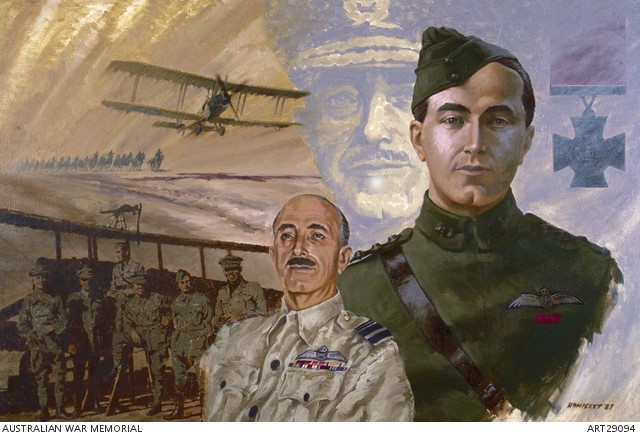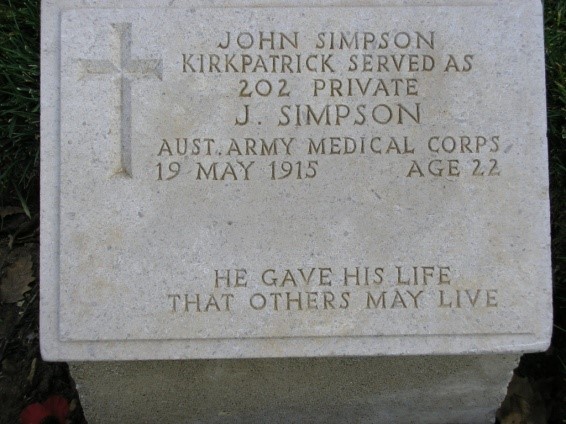It is in the face of adversity that legends are born and the ANZAC legend was no exception. Our best qualities come forth when confronted with difficulties that we must overcome. Like precious stones that are formed under pressure, character is forged in the furnace of affliction.
Gallipoli was a military disaster with thousands of young lives being cut down senselessly in the face of a barrage of artillery fire. However, the qualities shown by these men who had sacrificed everything to go and serve is an example to us all. Our boys quickly grew to be men, and not only adults but men of character.
ANZAC Characteristics
What are the characteristics exemplified by the ANZACs that created the legend?
Patrick Lindsay, in The Spirit of the Digger, reflects on what sets the Australian soldiers apart:
Soldiers everywhere reflect, and are only as good as, the community from which they are drawn. It follows that Australians have the essence of the Digger within them. The spirit emerges when the individual calls on it in times of need. The image of the Digger is derived from an intricate amalgam of qualities: each has been proven in the heat of battle and has been personified at various times by remarkable members of the tribe. Chief among these qualities are mateship, courage, compassion, endurance, selflessness, loyalty, resourcefulness, devotion, independence, ingenuity, audacity, coolness, larrikinism and humour.1
Mateship
Lindsay describes mateship as something that goes beyond comradeship. It is a mutual respect that binds men for life, and enables them to either embrace or overlook their mates’ foibles and draws on a seemingly limitless depth of commitment to each other. It helps to form teams with combined strengths far exceeding the sum of those of the members.2
There is a rule in the army; we don’t leave our wounded behind. It is like an extended family. This is why it was so hard for many to leave their horses behind – they had become their mates. In many cases, the soldiers shared their precious last drinking water with their four-legged companions.
 Frank McNamara is a classic example of this mateship. He was the only recipient of the Victoria Cross in the whole Middle Eastern campaign. He came from Rushworth in northern Victoria, and studied to be a teacher. He enlisted in the air force and trained as a pilot. In the days leading up to the ground assault on Gaza, he was flying with the No 1 Squadron, Australian Flying Corps involved in bombing raids over Gaza.
Frank McNamara is a classic example of this mateship. He was the only recipient of the Victoria Cross in the whole Middle Eastern campaign. He came from Rushworth in northern Victoria, and studied to be a teacher. He enlisted in the air force and trained as a pilot. In the days leading up to the ground assault on Gaza, he was flying with the No 1 Squadron, Australian Flying Corps involved in bombing raids over Gaza.
The Australian War Memorial records:
On 20 March McNamara, flying on one such operation, saw a fellow squadron member, Captain D. W. Rutherford, shot down. Although having just suffered a serious leg wound, McNamara landed near the stricken Rutherford who climbed aboard, but his wound prevented McNamara from taking off and his aircraft crashed. The two men made it back to Rutherford's plane which they succeeded in starting and, with McNamara at the controls, they took off just as enemy cavalry reached the scene. For this action McNamara was awarded the Victoria Cross.3
General Peter Cosgrove says:
Mateship can’t exist without trust and reliability and we elevate mateship but it must be built on the fundamental obligation felt by the individual to keep his or her word.4
Oh how our nation needs to stand together with bonds of love and unity instead of fracturing itself into thousands of pieces through individualism and selfishness.
Courage
Courage is one of the greatest qualities displayed by the ANZACs. This won them admiration from both their allies and their enemies. At the battle of Beersheba, the Germans never believed that they would charge against an entrenched army with machine guns and artillery. The ANZAC men went where others feared to tread. They sent fear into the hearts of their opponents because of their reckless courage, earning them nicknames as ‘madmen’ and ‘devils on horseback’. Even at Gallipoli, they fought bravely and kept fighting even unto death. There are countless examples of one man, grossly outnumbered, taking on the enemy and winning because of his sheer audacity and fearlessness.
Courage is not only a physical quality but also a moral one. Courage is rare in a society that is bowing to ‘political correctness’. Courage is being willing to stand one’s ground for what is right, even when you are in the minority. It does not fear man or fear consequences. It is willing to swim against the tide and be mocked, ridiculed and persecuted for righteousness’ sake.
We desperately need a new generation of Anzacs that will stand against the flood of immorality and godlessness that is mushrooming across the land. They will be courageous warriors who will lock arms, draw the line and say, “No further”. They will not engage in the filth of the world and are ready to die for the cause of others.
Courage is contagious. When a brave man takes a stand, the spines of others are often stiffened.5
Endurance and Perseverance
The ANZACs’ endurance was shown by the way they pushed on through sleepless, bitter-cold nights, scorching temperatures by day, little food and water, homesickness, and the heartache of losing mates or their beloved horses. It enabled them to overcome when the odds were stacked against them but they didn’t give up.
Major Michael Shanahan was one who went back to the battle after rescuing four of his troops, then kept fighting for an hour, even when he was injured, until he fainted.
Do we have that sort of endurance or do we give up at the first obstacle? We need to be undaunted by the task and unflinching in commitment.
Sacrifice and Selflessness
 John Simpson Kirkpatrick served in the field ambulance at Gallipoli as part of the Australian Imperial Forces Medical Corps. He is renowned for working day and night carrying the injured on his donkey from Monash Valley down to Anzac Cove. He was fearless in the face of bullets and machine guns, thinking not of his own safety but only those who were injured. He was only 22 years old when he finally succumbed to the deadly fire and is buried in Gallipoli.
John Simpson Kirkpatrick served in the field ambulance at Gallipoli as part of the Australian Imperial Forces Medical Corps. He is renowned for working day and night carrying the injured on his donkey from Monash Valley down to Anzac Cove. He was fearless in the face of bullets and machine guns, thinking not of his own safety but only those who were injured. He was only 22 years old when he finally succumbed to the deadly fire and is buried in Gallipoli.
The young volunteers enlisting in the army were willing to leave their families, homes, jobs and friends to serve in a foreign country in a war that was not even threatening their own country or livelihood. The best years of their youth were given up and many came home with physical, mental or emotional scars that remained with them for the rest of their lives. It was an enormous cost. They paid the price - but they did it willingly.
The ANZAC values of courage, mateship, perseverance and sacrifice are what forged our nation’s identity.
Good Humour
The ANZACs were highly respected and popular with the locals. For decades after the war, Australians were warmly welcomed in Israel and the sight of a slouch hat still evokes strong memories for those who know the story of the Light Horsemen. They were known for making the best of every situation and looking on the bright side. Their laid-back attitude helped them survive the most stressful times, of which there were many. Jokes such as, “We saw the sign to Beer-sheba so we decided to charge for it!” (a reference to the hope of obtaining some beer - if you didn’t get it). This is typical of the dry Australian sense of humour. They did not give in to the stiff upper lip of the British, and were considered undisciplined at first because they did not show the expected respect to the British commanders. However, when required, they proved themselves in the most trying of circumstances to be totally disciplined when it mattered and able to pull off the most unlikely victories.
Patrick Lindsay sums up:
In many ways the Digger is a study in contradiction: he doesn’t crave war yet he will fight with unequalled ferocity; he hates spit and polish but will hold his discipline under the most trying conditions; he is tough yet compassionate; he hates his enemy until he surrenders then he is generous in victory; he despises histrionics but will cry unashamedly at the loss of a mate; he believes he’s invincible but he’s not afraid of death; he will refuse promotion but unhesitatingly take command in a crisis; he will poke fun at his leaders but defend them with his life; he represents an arm of the nation’s authority, yet he hates authority.6
Endnotes:
- Lindsay, P., The Spirit of the Digger, Harper Collins, 2003, 16
- Ibid, 16-17
- https://www.awm.gov.au/people/P10676512
- Quoted in Lindsay, op cit, 20
- Graham, Billy, A Time for Moral Courage, Reader's Digest, July 1964, quoted on https://en.wikiquote.org/wiki/Courage
- Lindsay, op cit, 31
Pictures:
- Frank McNamara – Honisett, Ray, Air Vice-Marshal Frank McNamara, oil on canvas. Australian War Memorial, ART29094
- Simpson’s grave – Jill Curry

